
Answer first: Bird's eye chili measures 50,000-100,000 Scoville Heat Units (SHU), making it 12-40 times hotter than a jalapeño. Use 1/4 to 1 whole chili per dish for authentic Thai flavor without overwhelming heat. Always remove seeds and white membranes to reduce heat while preserving flavor.
Table of Contents
- What is Bird's Eye Chili? (Size, Appearance, Heat Level)
- How Hot Is Bird's Eye Chili? Simple Scoville Scale Comparison
- Bird's Eye vs Jalapeño vs Habanero: Real Cooking Differences
- Top 5 Ways to Use Bird's Eye Chili in Home Cooking
- How to Handle Bird's Eye Chili Safely (3-Step Method)
- Easy Cooking Tips for Perfect Heat Every Time
- Best Substitutes When You Can't Find Bird's Eye Chili
- Frequently Asked Questions (Quick Answers)
What is Bird's Eye Chili? (Size, Appearance, Heat Level)
If you've ever ordered Thai food and wondered what gives it that signature sharp heat, you've encountered bird's eye chili. This small red or green pepper (1-2 inches long) packs serious heat while delivering a bright, citrusy flavor that defines Southeast Asian cuisine.
Native to Africa but perfected in Thailand, these chilies go by many names: Thai chili, prik kee noo (Thai for "mouse dung chili"), or piri piri in Africa. The most important thing to know? One whole bird's eye chili equals about 4 jalapeños in heat, but with more complex flavor.
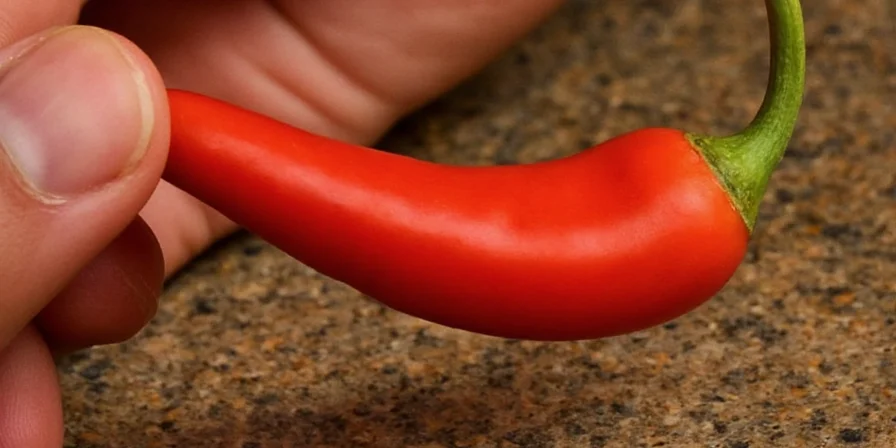
How Hot Is Bird's Eye Chili? Simple Scoville Scale Comparison
Forget complicated measurements - here's what the heat means for your cooking:
| Pepper | Heat Level You'll Experience | Use in 4-Serving Dish |
|---|---|---|
| Bell Pepper | No heat | 1 whole pepper |
| Jalapeño | Mild warmth (start here if new to spice) | 1-2 sliced peppers |
| Bird's Eye Chili | Sharp, immediate heat (use carefully!) | 1/4 to 1 whole pepper |
| Habanero | Intense, lingering burn | 1/8 to 1/4 pepper |
Practical takeaway: For most home recipes, start with 1/4 of a bird's eye chili (seeds removed) and taste before adding more. Thai varieties (bright red) run hotter (70,000-100,000 SHU) than African types (50,000-75,000 SHU).
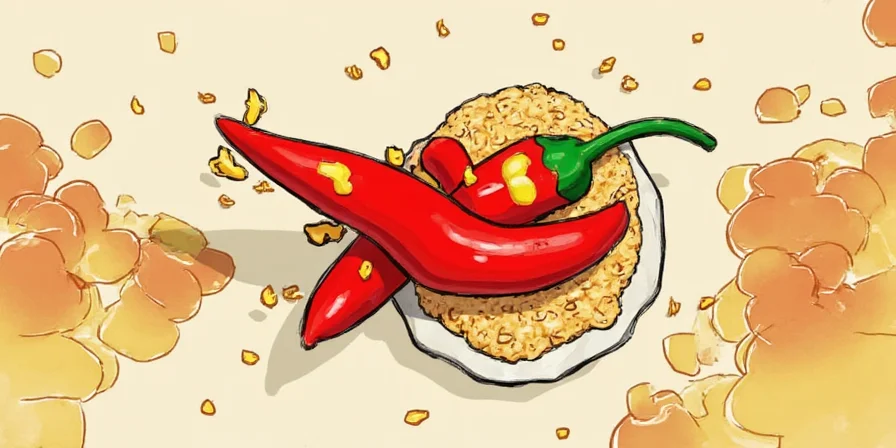
Bird's Eye vs Jalapeño vs Habanero: Real Cooking Differences
Understanding these differences prevents kitchen disasters:
- Bird's Eye Chili: Sharp, immediate heat with citrus notes - perfect for finishing dishes
- Jalapeño: Gradual warmth - better for baking or slow cooking
- Habanero: Intense, lingering burn - use sparingly in sauces
Substitution guide:
- Can't find bird's eye? Use 1/2 teaspoon red pepper flakes + 1/4 teaspoon fresh lemon juice
- Making Thai food? Never substitute jalapeños - you'll lose authentic flavor
- For milder heat: Remove seeds and white membranes (holds 80% of the heat)
Top 5 Ways to Use Bird's Eye Chili in Home Cooking
Get authentic results with these practical applications:
- Stir-fries: Add 1/4 sliced chili during last 2 minutes of cooking
- Curry pastes: Blend 1 whole chili with garlic and lemongrass
- Dipping sauces: Finely mince 1/2 chili into soy-vinegar mixture
- Marinades: Slice lengthwise and leave whole for gradual heat release
- Garnish: Thinly slice and float on soups for visual appeal and controlled heat
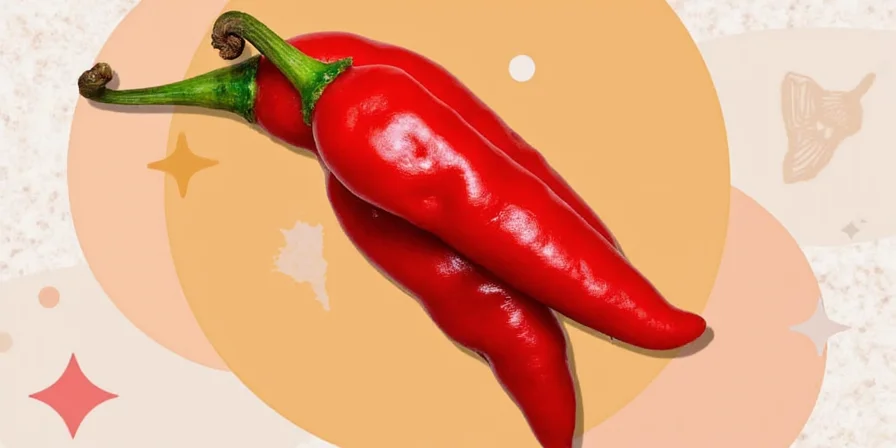
How to Handle Bird's Eye Chili Safely (3-Step Method)
Avoid painful mistakes with this foolproof approach:
- Prep Area: Use a separate cutting board (designate one for chilies only)
- Protection: Wear nitrile gloves (latex won't protect you) or use tongs
- Cleanup: Wash hands with soapy water THEN wipe with rubbing alcohol
If you get chili on your skin: Soak affected area in whole milk for 5 minutes, not water. Water spreads the oil!
Easy Cooking Tips for Perfect Heat Every Time
Professional results without the kitchen disasters:
- Control heat level: Remove seeds and white membrane for milder flavor
- Preserve flavor: Add during last 5 minutes of cooking (heat breaks down flavor)
- Reduce heat: Soak sliced chilies in rice vinegar for 10 minutes
- Store extras: Freeze whole chilies in airtight container for 6 months
- Rescue over-spiced food: Add dairy (coconut milk works for Thai dishes) or acid (lime juice)
Best Substitutes When You Can't Find Bird's Eye Chili
Emergency solutions that actually work:
- Best substitute: 1/2 teaspoon red pepper flakes + 1/4 teaspoon fresh lemon juice
- For authentic Thai flavor: 1 serrano pepper (use 1/2 and remove seeds)
- Milder option: 1-2 Thai dragon chilies (check heat level first)
- What NOT to use: Cayenne pepper (wrong flavor profile) or jalapeños (too mild)
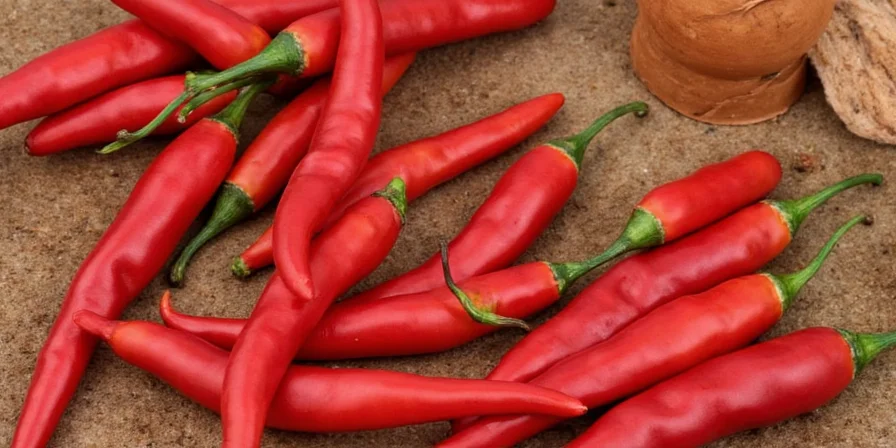
Frequently Asked Questions (Quick Answers)
How many bird's eye chilies equal one jalapeño?
One bird's eye chili equals 4-5 jalapeños in heat. For cooking, use 1/4 to 1/2 of a bird's eye chili to replace one jalapeño, depending on your heat tolerance.
How do I reduce bird's eye chili heat without losing flavor?
Remove only the white membrane (placenta) while keeping seeds intact. The membrane holds 80% of the heat, but seeds contribute flavor. Soak remaining parts in lemon juice for 5 minutes for further heat reduction.
Can I use dried bird's eye chilies instead of fresh?
Yes! Use 1 dried chili for every 2 fresh chilies. Rehydrate in hot water for 15 minutes before using. Dried chilies have more concentrated flavor but less bright citrus notes.
Why do Thai recipes use so many bird's eye chilies?
Thai cuisine balances heat with sweet, sour, and salty elements. The chilies provide immediate heat that complements other flavors rather than overwhelming them. Most dishes use chilies both in cooking AND as fresh garnish for controlled heat.
How long do fresh bird's eye chilies last in the fridge?
Stored in a paper bag in the vegetable drawer, they'll stay fresh for 2-3 weeks. For longer storage, freeze whole chilies in an airtight container for up to 6 months without flavor loss.

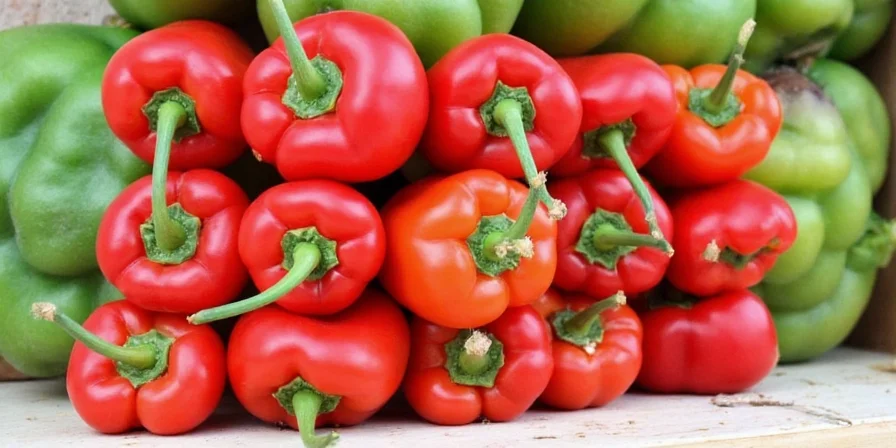









 浙公网安备
33010002000092号
浙公网安备
33010002000092号 浙B2-20120091-4
浙B2-20120091-4